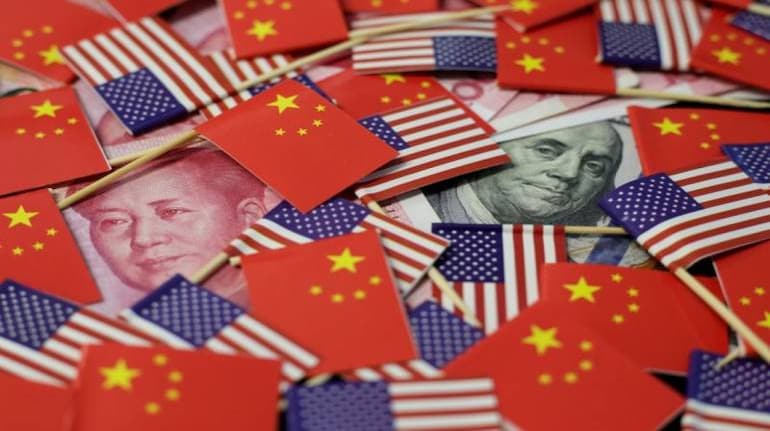



On March 22, the United States Department of Treasury’s Office of Foreign Assets Control (OFAC) sanctioned two Chinese provincial officials for “serious human rights abuses against ethnic minorities in the Xinjiang Uyghur Autonomous Region (XUAR).” In response to these sanctions, China imposed sanctions against two US citizens, a Canadian parliamentarian and its human rights advocacy group. It is reported that for the first time since the 1989 Tiananmen Square Crisis, the European Union has been vocal against China. Beijing placed under sanctions 10 individuals and four entities.
This tit-for-tat sanction reflects the already ‘tense’ ties between these ideologically-diverse political systems in the context — minorities, human rights and religious freedom — that has manifested reaction and unease in geopolitical and economic engagement. The current spat is no different.
The Fallout
Xinjiang, situated in China’s northwest, is one of the five minority autonomous regions, inhabited by the ethnic Uyghur Muslims. The XUAR is China’s largest cotton producer and second-largest globally, after India. Being restive, XUAR is also a province where surveillance is the most. Beijing has been criticised for its high-handed policies — forced internments in the guise of vocational training and re-education of the local population. Such criticisms by the West are not new, and have become a leveraging tool to engage China.
The current fallout stems after global brands such as Nike, Adidas, H&M pledged to refuse to use Xinjiang cotton over concerns on labour standards. Following this, many Chinese celebrities terminated their contracts and called for the boycott of these brands. The apps of these brands were removed from e-commerce sites and even from Huawei’s app stores.
One such instance of China’s consumer nationalism cost South Korea’s Lotte its market footprint post anti-THAAD sanctions in 2017. Nike, Adidas, and Skechers have more than 45 percent of the market share, as against China’s domestic brands such as Anta and Li-Ning.
Two-way Damage
For the time being western brands may withstand the Chinese swadeshi campaign. However, as China is the largest consumer of these global sportswear and apparel brands, a long-term boycott can be detrimental to their balance sheets.
With a lack of expertise and experienced domestic companies, replacing these global brands would be difficult. Moreover, sports endorsement and sponsorships are the other area were the presence of these giants with long-term deals with China’s national football league, basketball and athletics commands a predominant position in the domestic market. Besides, retired NBA player Yao Ming and other Chinese NBA veterans have their professional and commercial commitments entrenched with these sportswear giants. The damage, therefore, not only accrues to the value of the foreign brands, but also to the domestic Chinese stakeholders.
Negative Impact
The present fallout can be globally embarrassing. Chinese sportswear giant Anta pulled out of the Switzerland-based Better Cotton Initiative after being suspended from it over the Xinjiang cotton issue.
Anta is the proposed supplier of uniforms and sportswear for the Tokyo Summer Olympics later this year and the 2022 Beijing Winter Olympics. Failing to resolve this crisis will not only embarrass western nations but will also have a negative impact on the international image of China home grown brands.
Dominant US
While former United States President Donald Trump was happy to host autocrats and dictators, incumbent Joe Biden prefers ‘institutional status quo’ and to see US’ relevance and dominance in international politics. Nevertheless, following the previous administration, the US policy towards China has not changed under President Biden. Moreover, the US has been convincing Europe and its other allies in pursuing its interests by building coalitions and partnerships. The sanctions on Xinjiang cotton can resonate Deng’s guiding principle of ‘feeling the stones while crossing the river’ to the western nations. For the Chinese, however, the ‘ban’ and ‘boycott’ as a tool of consumer nationalism can be pursued in a shorter period, given there are other alternatives.
Ideological Achilles Heel
The recent verbal duel at the Anchorage Summit between the Chinese and the US showed that the ‘future interactions’ would be shaped 'over values and rules’. That said, unlike the US-China trade war, the present dispute over human rights hits the political nerve of the Chinese State. Even if China accuses the West about the latter’s hypocrisy on human rights and political turmoil due to racial and social issues, it cannot absolve itself.
The real issue, therefore, is ideological. With plethora of leaked government reports and advanced satellite images, Xinjiang — known as ‘new frontier’ in Mandarin — still seems to be a prophetic ‘new’, and probably an ‘ideological’ Achilles heel for the Chinese State-building process.
In fact, a ‘strong and powerful country’ at the cost of the native people would be against the original intent of the party-state in the long run.
Discover the latest Business News, Sensex, and Nifty updates. Obtain Personal Finance insights, tax queries, and expert opinions on Moneycontrol or download the Moneycontrol App to stay updated!
Find the best of Al News in one place, specially curated for you every weekend.
Stay on top of the latest tech trends and biggest startup news.